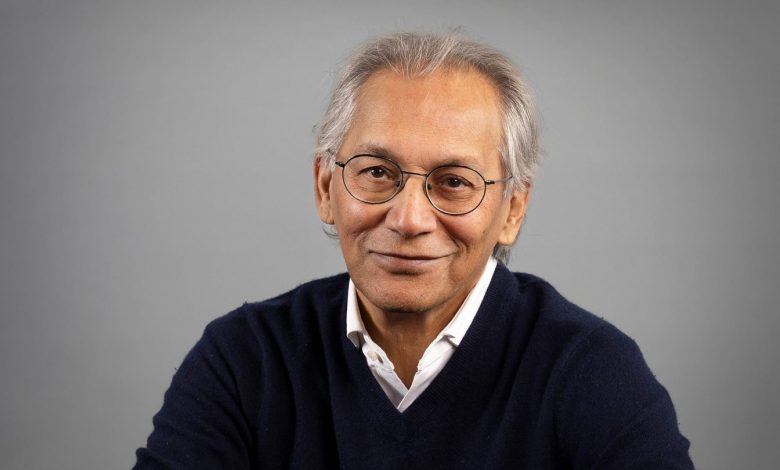BBC Is a “Very British Success Story,” New Chair Says But Warns: “The Fight Is on”

The BBC “is a very British success story”, new chair Samir Shah said in Leeds, England on Tuesday in his first public speech, in which he outlined his vision for the future of U.K. public service broadcasting and his priorities for the BBC.
But amid the rise of streaming, the exec also warned: “The fight is on.” He continued: “Action is needed now to future-proof public service broadcasters, otherwise our very British success story will be part of our halcyon past.”
“Look at it all, it’s fantastic, isn’t it? Is this a good thing? Of course, it is,” Shah began. “I daresay many of you have a few subscriptions. I certainly do. From Slow Horses to Stranger Things, from Champions League football to Test Match cricket… My leisure time has been infinitely enriched by the options now available to me.”
Shah said of PSBs: “Of course, we should embrace and welcome the exciting opportunities of the on-demand world. But that doesn’t mean we can’t try and shape the choices people have in this new media landscape to benefit the public good.”
He voiced vital support for simple access to PSBs on every platform, impressing on the U.K. government and regulator Ofcom the prominence in the implementation of the new Media Act, and a more forward-looking regulatory approach.
“We need a regulatory system that enables Ofcom to support us and help us thrive in this rapidly changing world. PSBs need to be able to move with greater agility, flexibility, and pace,” he said, citing the speed of regulatory processes often leaving the BBC on the backfoot while Netflix, Disney or Amazon can steam ahead.
His third aim is to protect the grassroots: “As Chair, I will engage with PSBs and talk to Government about what more could be done to make sure the tax system and the policy environment not only benefits the big players, but supports training and skills for the whole sector, in every part of the U.K.”
The 72-year-old questioned the “sense of almost perpetual government review over the BBC” and said no other country has anything like this. “Public service broadcasters lie at the heart of our social and cultural life, and they are worth fighting for.”
He listed three reasons — economic, social and cultural — that PSBs are so important: “[They have] been crucial to the growth of our world-class creative sector. More than that, they underpin it,” Shah said. On social, he added: “From Channel 4’s mission to give voice to marginalized communities and Radio 4’s ‘everyday story of country folk’, The Archers, to ITV’s Coronation Street, PSBs have long reflected British society in all its diversity.”
“And thirdly, cultural: PSBs have always shaped and influenced the national debate. Not least by pulling together the nation as one people sharing a collective experience whether in outrage — that Mr Bates vs the Post Office, in joy — when Andy Murray victory at Wimbledon, or in sadness — the death of Her Majesty the Queen.”
Shah also floated a permanent BBC charter, bringing the company in line with other institutions such as the Bank of England or U.K. Sport. The current system means the BBC’s royal charter is renewed every 10 years, with it next set to run out in 2027.
He also made a thinly veiled reference to the Huw Edwards scandal after the former BBC broadcaster was convicted over child sex offense crimes: “Of course, there have been and are concerns about unacceptable behavior in the BBC. I, and the BBC Board, take this matter very seriously and are determined to root out abuses of power. We have seen significant progress in recent years – and certainly much better since I began my career in television 30 years ago. Nevertheless, there continues to be a sense that powerful people ‘get away with it’.”
Source: Hollywoodreporter
Related Posts
- Roundball Rocked: With NBA Return Looming, NBC Purges Scripted Roster
- SoundCloud Says It “Has Never Used Artist Content to Train AI Models” After Backlash on Terms of Service Change
- Fox News’ Camryn Kinsey Is “Doing Well” After Fainting on Live TV
- Kerry Washington and Jahleel Kamera in 'Shadow Force.'
Courtesy of Lionsgate
…
- This Alternative Artist Landed a Top-20 Chart Debut With an Album Made Almost Entirely on His Phone





